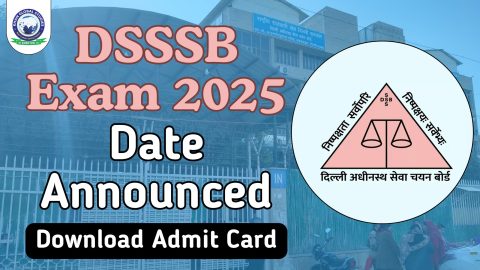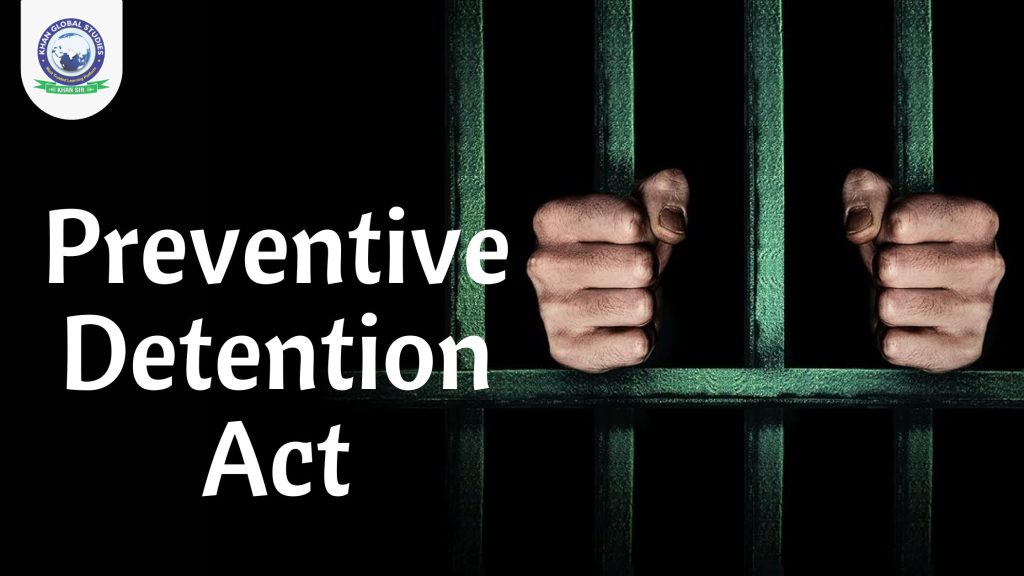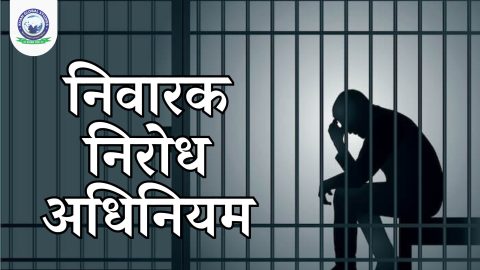The Preventive Detention Act is a statute that empowers the government to detain a person without proving him or her guilty. It aims to maintain peace and order in society and prevent criminal activities. However, the Act is often surrounded by controversies as it is considered to violate the fundamental right to personal liberty.
What is Preventive Detention?
Preventive detention refers to the act of detaining a person not for a crime already committed, but based on the belief that the person may engage in criminal behavior in the future. Under this Act, the government has the right to detain a person for a certain time.
Scope and Significance
The laws and issues related to preventive detention revolve around the issue of personal liberty, which is intrinsically linked to human rights.
- In the case of Alijav v District Magistrate, Dhanbad, the Supreme Court we have held that the purpose of criminal proceedings is to punish a person for the offence committed.
- In the case of Ankul Chandra Pradhan v Union of India, the Court emphasised that the purpose of preventive detention is not punitive but to prevent the detainee from engaging in activities prejudicial to the security of the State.
- In India, the power to legislate preventive detention derives from the Constitution, which empowers Parliament to make such laws for reasons of defence, foreign affairs or the security of India. Parliament has exclusive legislative powers.
- Both the Union and the States have concurrent legislative powers to make laws for reasons relating to the security of the State, maintenance of public order or the supply and maintenance of goods and services essential to the community.
- Such detention is carried out without any criminal trial, and these laws are not bound to follow the procedural safeguards that are fundamental to the regular detention of a person.
- Parliament has enacted several laws in this regard, including the infamous Preventive Detention Act and others:
- National Security Act, Section 13, 1980 (which provides for administrative detention for up to one year)
- Conservation of Foreign Exchange and Prevention of Smuggling Activities Act, 1974 (COFEPOSA) (which provides for administrative detention for up to six months)
- Prevention of Black Marketing and Maintenance of Supplies of Essential Commodities Act, Section 13, 1980 (six months)
- Prevention of Illicit Trafficking of Narcotic Drugs and Psychotropic Substances Act, Section 10, 1988.
Supreme Court on Preventive Detention (Latest Update)
In a judgment (April 2023), the Supreme Court declared that preventive detention laws are relics of the colonial legacy and grant arbitrary powers to the government.
- Preventive detention laws pose a threat to individual liberty and violate fundamental rights because they are colonial relics and grant arbitrary powers to the state.
- The Supreme Court and High Courts have consistently rejected the executive’s use of preventive detention laws in the past, and have cited the executive’s failure to observe procedural safeguards.
- While courts can quash detention orders on technical grounds, it is rare for a detainee to obtain actual relief as quashing an order can take many months.
- Continued emphasis on procedural safeguards by the Court will help strengthen the fundamental rights of individuals. However, in most cases, courts rarely examine whether it is necessary to detain a person.
- In this context, the Supreme Court has emphasised that the executive must observe procedural safeguards, and any lapse in this process will be in favour of the detainee.
Case Context and Overview
Some of the cases in which the Supreme Court has addressed preventive detention are discussed below.
- The first case to come before the Supreme Court was A.K. Gopalan v. State of Madras, where the Court upheld the validity of the Preventive Detention Act. Further, the Court also held that Article 22 of the Constitution provides extensive procedural safeguards in respect of preventive detention. Thus, the Court concluded that the impugned Act does not violate fundamental rights as it includes all the procedural safeguards mentioned in Article 22(5).
- In the case of Ram Manohar Lohia v. State of Bihar, the Supreme Court attempted to distinguish between the concepts of “state security”, “public order” and “law and order”. In a passage that has been surprisingly often quoted, Justice Hidayatullah emphasised that only the most serious acts can justify preventive detention.
- We should imagine three concentric circles. The largest circle represents law and order, within which the next circle represents public order, and the smallest circle represents state security. It is easy to see, then, that an act may affect law and order, but not public order, just as an act may affect public order, but not state security.
- The Court concluded that acts affecting only “law and order”, without affecting either of the other two categories, cannot justify a detention order. Of course, this analysis, aside from its academic benefits, provides little clarity on the contested concepts, since it only suggests that courts may examine the executive’s assessment of threats to public security.
- In Anil Dey v State of West Bengal, the Supreme Court ruled that “courts cannot lift the veil of the subjective satisfaction of the detaining authority to assess its objective adequacy.” Although courts cannot replace their judgment by applying objective tests to the decision of the detaining authority to determine whether detention is necessary for a specified purpose, they review whether the satisfaction is “honest and genuine, and not fanciful or speculative.” Thus, courts are expected to ensure that the executive applies its mind to the decision to issue a detention order.
Delay in Relief
- Generally, most detentions are cancelled, and the most common reason for this is the delay by the authorities in resolving petitions filed by detainees against the detention.
- Other reasons for the cancellation of detention orders include:
- Failure to provide valid grounds for detention
- Delay in submitting grounds for detention
- Providing illegible copies of documents
- Application of detention law for a frivolous reason
- An example of the application of detention law for a frivolous reason was the detention of a person labelled as a gangster for selling substandard chilli seeds.
- An important reason is that the Goonda Act covers a wide range of offenders, not just habitual offenders, but also liquor smugglers, slum dwellers, forest dwellers, video pirates, sex offenders and cybercriminals.
- Although the Constitution allows preventive detention, effective policing and timely completion of trials are still essential to prevent crime.
Conclusion
The purpose of Article 22 was to protect the right to life and personal liberty, not to curtail it. Mr. Seervai has discussed this in his commentary and concludes that it would have been better if the first two clauses of Article 22 were part of Article 21, with a separate paragraph for exceptions. Given what happened later, the different wording of Article 21 could have led to a different judgment in the Maneka Gandhi case. It could have prevented the Supreme Court from incorporating the important due process standard, which the Constituent Assembly carefully decided to avoid.





